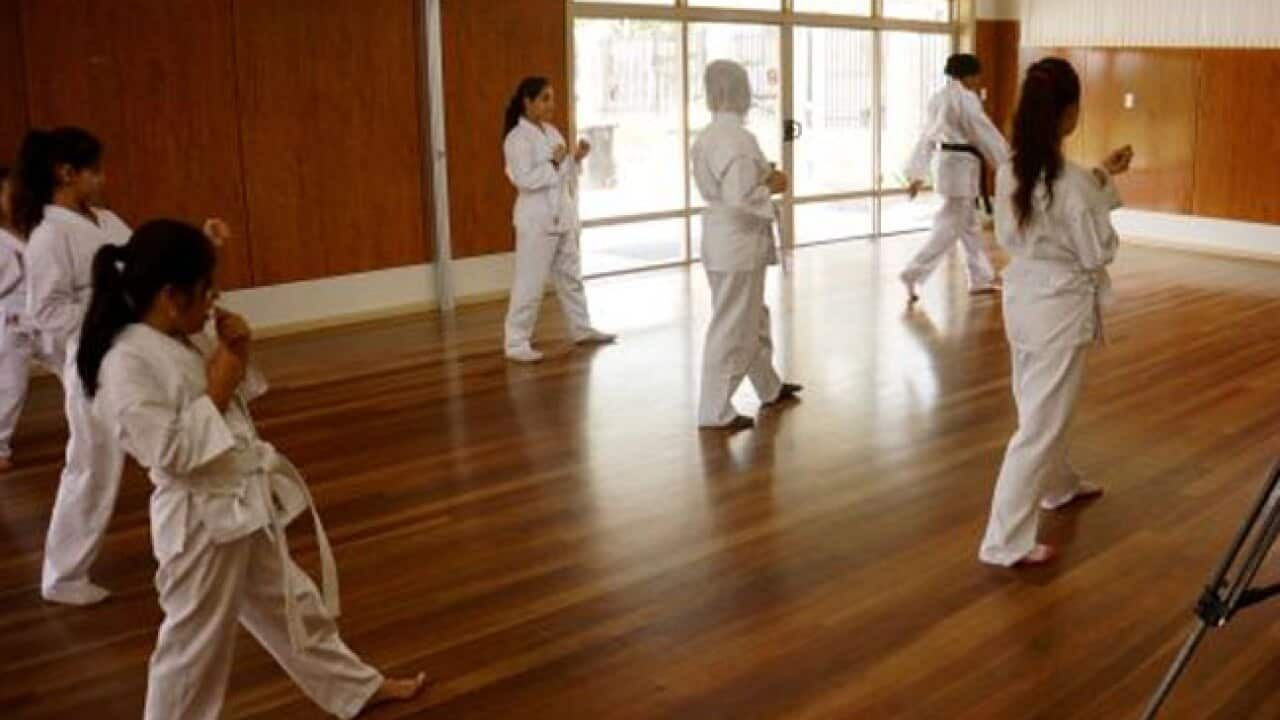Jessica Jones had to fight more than just her opponents to take up Shotokan karate at the age of eight.
The Sudanese-born athlete had to first convince her family and her community that girls should be able to practice, too.
“I fought too much to stay in the class,” she says. "First my parents, they didn't like it. My family, my neighbour, you know. Everybody [was] like, 'oh, you're a girl,'” she says.
She says the struggle lasted through years of training, until finally she travelled to Cairo to train at a Japanese school, where she eventually earned her black belt -- and the respect of a nation.
"After that I came back to my country and everyone was like, yay! We have a champion. You're the first lady in Sudan [who has] a black belt. So everybody was happy for me.
"That time I forgot the pain I went through to have the black belt."
Ms Jones' success was not just a personal victory. It helped clear the way for other young Sudanese girls to take up the sport.
"They start now actually to have all the girls come to karate," she says. "They start to learn without [being] scared and being afraid of people talking."
VIEW MORE: EXTENDED INTERVIEW WITH SUDAN'S FIRST FEMALE BLACK BELT JESSICA JONES
With the help of the Australian Afghan Hassanian Youth Organisation, Ms Jones now runs karate classes for Muslim girls in Sydney's west, where she has settled with her family after arriving in Australia as a refugee.
Many of her students are of Afghan or Pakistani background, and have already tackled the challenge of adapting to a new culture, a new language and a new country.
Their background makes them even more determined to learn to defend themselves, says Ms Jones.
"Back [in their home countries], they have all kinds of fight and stuff. Their parents, they saw a lot."
"[They fear] getting kidnapped, getting killed.... they want to defend themelves. They all have reason to come, and they have fun as well."
Fourteen-year-old participant Zahra loves every kind of sport, "but this is one of my favourites," she says of the karate class.
Apart from being fun, it's a good way to learn important skills. "You'll be safe, you don't have to depend on someone."
Having black belt champion Jessica Jones as a teacher is a bonus. "It shows that women can do everything they want," says Zahra.
Nine-year-old Rahat agrees. She's determined to prove that girls can do anything their brothers and male classmates can. "Lots of boys think that girls are weak and they can't do anything," she says. "I want to prove [them wrong]."
VIEW MORE: SHOTOKAN KARATE GIRLS AND PARENTS TALK ABOUT THEIR CLASS
Parents agree that the class helps girls to grow in confidence. Iram Shuja wholeheartedly supports her daughter's participation.
"This is better than ballet dancing. Karate is self-defence, it's good for them," she says.
Samina Kamran wanted her three daughters to learn in a girls-only class, to minimise the chances of them getting hurt. "I think they are quite responsible here... and [the girls] are so excited for these classes."
She has just one complaint: there aren't enough classes like this one. "I appreciate if they [have] more activities for children, who are always going to school and coming back home and have nothing else to do," she says.
Classes run by the Afghan Hassanian Youth Association are open to everyone. For more information, visit their website here.
Watch this story on YouTube:

